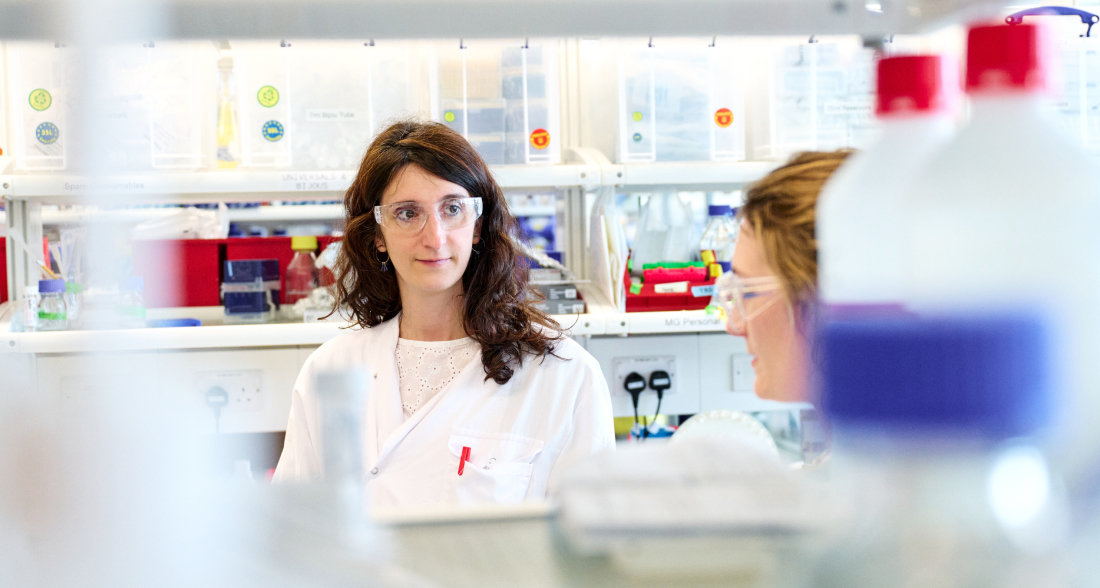Embracing new technology
Scientific discovery evolves constantly so Cancer Research Horizons consistently embraces and supports emerging areas, from new diagnostic technology platforms to artificial intelligence, which is currently making waves in cancer research. We are working with startup companies to help bring the potential benefits gleaned from these technologies to cancer patients.
Continue

Early detection news
During 2022/23, several of the licensable diagnostic technology platforms in the Cancer Research Horizons biomarker and diagnostic portfolio progressed towards becoming products. They represent a combination of new approaches that stem from a greater understanding of cancer cell evolution and tools to interrogate the complexities of cancers cells and the environment that surrounds them. Here is a summary of some of these technology platforms and the recent progress they made. Click the links in the description to find the full details and licensing opportunities.
Platform
ORACLE
ECLIPSE
T Cell ExTRECT
PCF-SELECT
AI partnerships
With the rapid growth in the application of artificial intelligence (AI) and machine learning (ML) to drug discovery, Cancer Research Horizons has been partnering with AI-enabled biotechs to help address key questions in drug development. In particular we have been excited by the possibility of using AI to help inform development of some of our late-stage preclinical assets and in particular the insights that AI can provide in disease positioning. Through partnerships with Turbine and Predictive Oncology, we are building hypotheses for our CDC7 and glutaminase inhibitors that will allow us to identify the most suitable patient population and map a potential path to the clinic.
Turbine

Turbine
Cancer Research Horizons partnered with tech-enabled biotech Turbine to develop novel disease positioning and patient stratification strategies for Cancer Research Horizons’ late-preclinical CDC7 inhibitor programme. CDC7 overexpression is correlated with poor survival in a broad range of cancers, but a clear picture is lacking on which patients could be effectively and safely treated by CDC7 inhibition. The collaboration is accelerated by Turbine’s Simulated Cells platform. Simulated Cells leverages AI/ML in addition to large datasets to mimic the molecular behaviours of a cancer cell and its response to genetic or chemical perturbations. Cancer Research Horizons and Turbine will then validate the Simulated Cells-driven hypotheses in vitro and in vivo, to increase the probability of clinical success of the CDC7 inhibitors.
Predictive Oncology

Predictive Oncology
We recently initiated a collaboration with Predictive Oncology that aims to help determine the cancer types and specific patient populations that our potent small molecule inhibitors of glutaminase could most effectively treat. The collaboration will utilise Predictive Oncology’s PEDAL™ platform, which is an AI/ML platform supported by experimentation from an extensive patient-derived tumour sample bank. PEDAL™ makes high-confidence drug response predictions, enabling a more informed selection of drug–tumour type combinations for clinical development, increasing the probability of clinical success by efficiently addressing tumour heterogeneity during preclinical stages.
